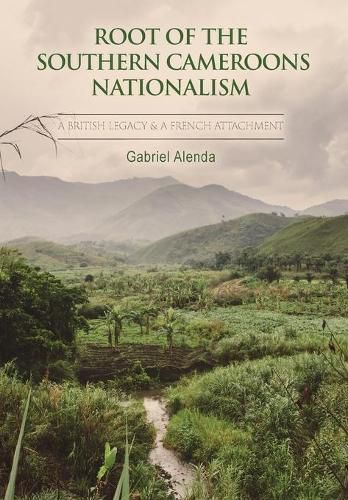Readings Newsletter
Become a Readings Member to make your shopping experience even easier.
Sign in or sign up for free!
You’re not far away from qualifying for FREE standard shipping within Australia
You’ve qualified for FREE standard shipping within Australia
The cart is loading…






This title is printed to order. This book may have been self-published. If so, we cannot guarantee the quality of the content. In the main most books will have gone through the editing process however some may not. We therefore suggest that you be aware of this before ordering this book. If in doubt check either the author or publisher’s details as we are unable to accept any returns unless they are faulty. Please contact us if you have any questions.
The deadly war currently raging in West Africa in a part of Cameroon, formerly called the British Southern Cameroons, is the least reported war in the world. This is because the French Cameroon Government has forcibly prevented interested foreign reporters from entering the country and local reporters from independently visiting the war zone. The UN’s casual treatment of the conflict as a triviality, Britain’s reticence in engaging in a mediation as a resolution tool (solution), France’s remote involvement in maintaining the status quo in the war zone are all components dragging the war on.
The complexity of the history of Southern Cameroons, now renamed Ambazonia, originates from a foreign imperialistic policy implemented nearly sixty years ago. Additional foreign powers today continue to enforce an ill-conceived policy that was never in the best interest of Southern Cameroons, forcefully keeping two distinctly different groups of people (Southern Cameroons and La Republique du Cameroun) together out of greed and expediency. The war is intense and ongoing. But to fully understand the current situation, one needs to know the edicts and mandates imposed on Southern Cameroons from 1919 through the 1960s and 1970s. This book underlines them all. This book will provide the international community, media, negotiators, and international policymakers and decision-making people with an in-depth understanding of the conflict, a raging war that is claiming far too many lives.
$9.00 standard shipping within Australia
FREE standard shipping within Australia for orders over $100.00
Express & International shipping calculated at checkout
This title is printed to order. This book may have been self-published. If so, we cannot guarantee the quality of the content. In the main most books will have gone through the editing process however some may not. We therefore suggest that you be aware of this before ordering this book. If in doubt check either the author or publisher’s details as we are unable to accept any returns unless they are faulty. Please contact us if you have any questions.
The deadly war currently raging in West Africa in a part of Cameroon, formerly called the British Southern Cameroons, is the least reported war in the world. This is because the French Cameroon Government has forcibly prevented interested foreign reporters from entering the country and local reporters from independently visiting the war zone. The UN’s casual treatment of the conflict as a triviality, Britain’s reticence in engaging in a mediation as a resolution tool (solution), France’s remote involvement in maintaining the status quo in the war zone are all components dragging the war on.
The complexity of the history of Southern Cameroons, now renamed Ambazonia, originates from a foreign imperialistic policy implemented nearly sixty years ago. Additional foreign powers today continue to enforce an ill-conceived policy that was never in the best interest of Southern Cameroons, forcefully keeping two distinctly different groups of people (Southern Cameroons and La Republique du Cameroun) together out of greed and expediency. The war is intense and ongoing. But to fully understand the current situation, one needs to know the edicts and mandates imposed on Southern Cameroons from 1919 through the 1960s and 1970s. This book underlines them all. This book will provide the international community, media, negotiators, and international policymakers and decision-making people with an in-depth understanding of the conflict, a raging war that is claiming far too many lives.